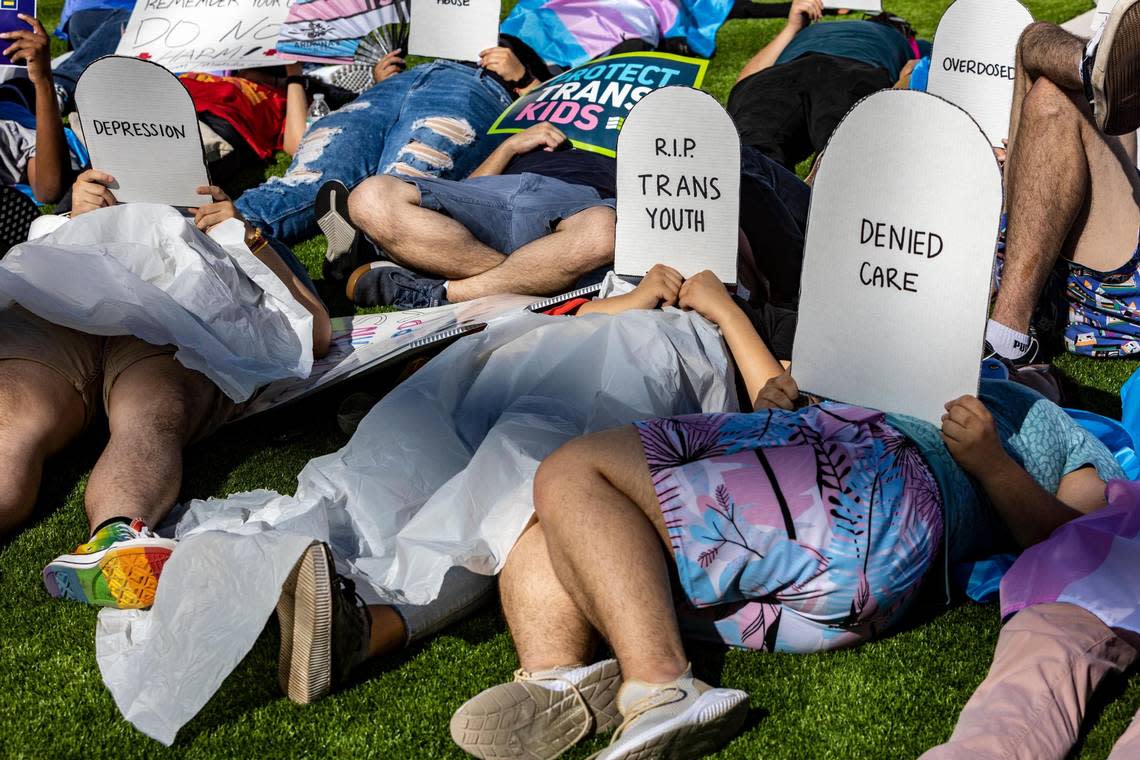DeSantis’ administration tells universities to detail spending on transgender care

At the urging of Gov. Ron DeSantis’ budget office, Florida’s public universities are being required to submit detailed information on services they provide to people seeking gender-affirming treatment.
The request comes weeks after DeSantis and House Speaker Paul Renner issued a similar demand for records on how much each university spends on diversity initiatives and activities related to critical race theory. It also follows action in November by Florida’s medical boards to prohibit doctors from performing surgical and other gender-affirming treatments on patients under 18 years old.
The latest request, dated Jan. 11, offered no explanation beyond a reference to the governor’s constitutional duties and a statement saying his budget office “has learned that several state universities provide services to persons suffering from gender dysphoria.”
Among those are the University of South Florida through its USF Health branch; the University of Florida, which operates a Center for Transgender Health in Jacksonville; Florida State University through its University Health Services division; and the University of Central Florida, which offers services through its Trans Care Team.
READ MORE: Judge denies request for ‘mental exams’ of 12-year-olds in Medicaid transgender lawsuit
The request seeks the number of “encounters” where sex-reassignment was sought, also asking for the names of facilities that patients were referred to. In addition, it seeks the number of individuals diagnosed with “ICD-10 Code F64,” the International Classification of Diseases’ code for gender dysphoria. The latest versions of ICD codes have replaced that classification with “gender incongruence” in a move to destigmatize treatment, according to the World Health Organization.
Also sought are the number of individuals prescribed puberty blockers, hormones, hormone antagonists and a list of specific surgical procedures. The budget office requested a breakdown of the patients’ ages and all policies and draft policies related to sex reassignment treatments.
The information is due by Feb. 10.
Last April, the state issued guidelines prohibiting the use of gender-affirming treatment, including social transitioning for children and adolescents, citing a “lack of conclusive evidence” in support of such treatments. The Florida Board of Medicine and the Florida Board of Osteopathic Medicine later voted to approve the guidelines prohibiting doctors from using gender-affirming medical procedures.
Also in April, a group of more than 300 Florida healthcare professionals, including former state Surgeon General Scott Rivkees, said in a statement that the state’s guidance “misrepresents the weight of the evidence,” which supports the practice of gender-affirming care.
Banning care for transgender youth, they wrote, “does not allow for personalized patient and family-centered care, and would, if followed, lead to higher rates of youth depression and suicidality.”
In June, the state Agency for Health Care Administration released a report claiming that “available medical literature provides insufficient evidence that sex reassignment through medical intervention is a safe and effective treatment for gender dysphoria.” However, experts told PolitiFact that the state mischaracterized research cited in the guidelines.
In August, the state released data showing that the number of Florida children on Medicaid who received behavioral gender-affirming care increased from 143 in 2017 to 233 in 2021. Those receiving puberty blockers increased from 15 to 55 over the same time span.
Fewer than 500 Florida youths received gender-affirming hormones in 2021 — less than 0.02% of the state’s Medicaid and CHIP enrolled youths — according to an analysis from the Human Rights Campaign, a nonprofit that advocates on behalf of the LGBTQ+ community.
